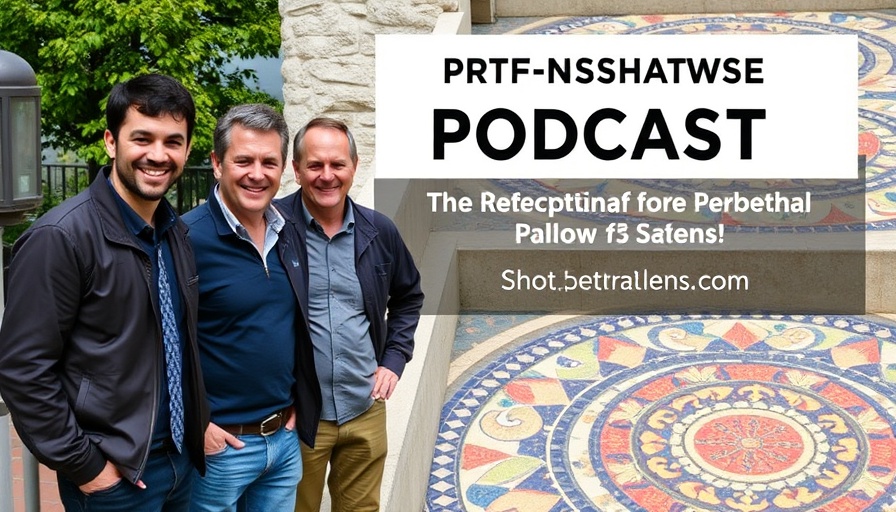
Unveiling the Greatest Biblical Discovery in Decades
The recent podcast episode titled "AC Podcast #538 - Greatest Biblical Discovery in 70 years" highlighted astounding archaeological finds that are reshaping our understanding of biblical history and its narratives. Throughout history, various archaeological discoveries have validated claims made in biblical texts, identifying physical evidence of people, places, and events depicted within the scriptures. This latest episode delves into some of the most impactful finds that serve to deepen our spiritual understanding and attract intellectual curiosity.
Fantastic Finds: Keys to Understanding the Bible
Among the remarkable discoveries presented in the podcast is an ink well found in a fisherman’s home at el-Araj, a site believed to potentially be the New Testament town of Bethsaida. This find is particularly significant as it challenges the notion that early fishermen, like Peter and John, were illiterate. It suggests that literacy was present even among those traditionally seen as low-status individuals in society, reinforcing the idea that God can call anyone, regardless of background. Not only does this discovery inspire believers, but it also invites skepticism and critical thought among those examining biblical narratives.
The Bigger Picture: Contextualizing the Discovery
The podcast contextualizes these findings within the wider framework of biblical archaeology which has become more rigorous, with scholars employing advanced photo and scanning techniques to analyze artifacts. One notable mention is the lead tablet discovered at Mount Ebal that dates back to the Iron Age. This small, engraved lead sheet contains a curse and has sparked significant debate within academic circles, opening doors for discussions about historical interpretations of scripture.
What This Means for Believers and Skeptics
For the faithful, these discoveries provide reassurance, validating their beliefs and encouraging them to delve deeper into the text. It emphasizes the reliability of the Scriptural accounts when measured against historical evidence. Conversely, for skeptics and seekers alike, these findings present an opportunity to explore faith from an academic perspective. The merging of faith and scholarship exemplifies how archaeological discoveries contribute to a broader understanding of human history and spirituality.
Looking Forward: Future Archaeological Trends
The future of biblical archaeology appears promising. As techniques and tools evolve, they will likely uncover more artifacts that can answer lingering questions about biblical accounts. The ongoing excavations throughout the Middle East continue to reveal stories locked in the earth, thus paving the way for renewed interest in biblical narratives among youth and college students. Moreover, cultural critics and intellectuals, observing these developments, will push for broader discussions surrounding faith and history in public discourse.
Getting Involved and Exploring Further
Whether you are a believer, skeptic, or simply curious about the intersection of archaeology and Scripture, it is crucial to stay informed about these discoveries. Engaging with resources from biblical archaeology and participating in discussions can enrich your understanding. Many organizations, such as the Associates for Biblical Research, provide insights and updates on contemporary archaeological findings that reinforce or challenge biblical texts.
To explore how you can integrate archaeological insights into your faith or studies, consider tuning into related podcasts and engaging with scholarly works. As discoveries continue to shape our interpretation of ancient texts, being part of this dialogue is vital.
 Add Row
Add Row  Add
Add 








Write A Comment